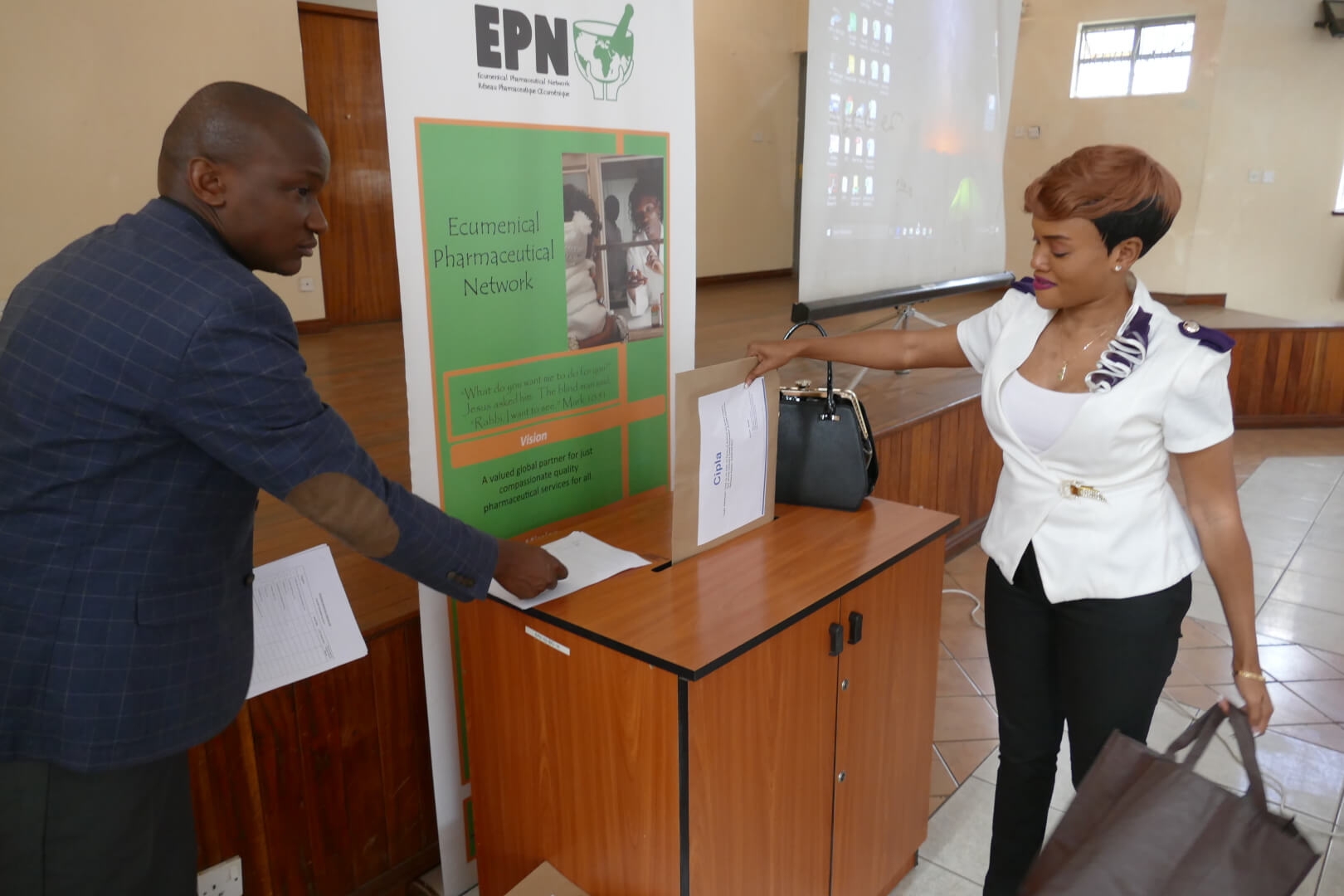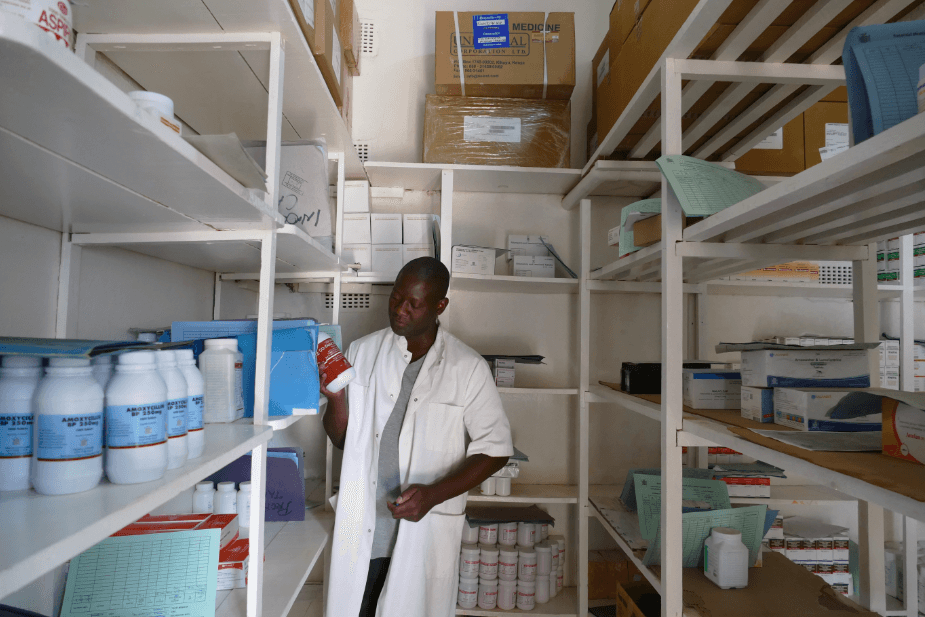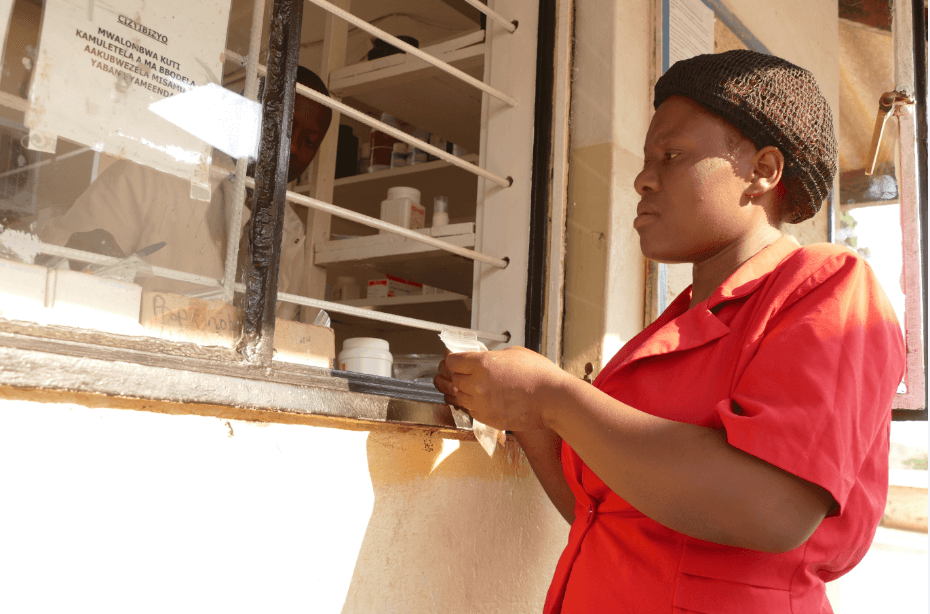One of the major challenges that many low and middle-income countries (LMICs) face is access to affordable, quality-assured essential medicines. This challenge trickles down to health facilities that struggle to maintain adequate levels of essentials medicines for their patients. Other factors impacting access include increased costs of medicines on the local market as most medicines are imported, the proliferation of, poor quality and counterfeit medicines, challenged supply chain systems, and proliferation of illegal outlets and suppliers.
Pooled Procurement is one of the solutions to improving access to affordable quality-assured medicines and medical products. It helps lower the costs through bulk purchasing and pooled negotiations, assurance of quality and stable supplies.
The option of pooled procurement scheme to enhance access to medicines that are cost-effective and are of high quality was proposed to the network by EPN because this strategy has been adopted over the past two to three decades, with success stories in several other African countries. Such examples include Drug Supply Organizations (DSO’s) in the EPN network such as CHAN Medi-Pharm in Nigeria and MEDS in Kenya.
East African Pooled Procurement
East Africa like other sub-Saharan African countries faces a double burden of high infectious diseases and non- communicable diseases (NCDs). In addition, increasing unemployment and poverty, rapid population growth and urbanization provide major challenges in access to quality health services and products. Church health systems in this region provide on average 40% of health care services with a higher concentration in the rural areas.
communicable diseases (NCDs). In addition, increasing unemployment and poverty, rapid population growth and urbanization provide major challenges in access to quality health services and products. Church health systems in this region provide on average 40% of health care services with a higher concentration in the rural areas.
With increasing costs of healthcare, many families are finding it challenging to access health care services and affordable quality-assured essential medicines. The East African region, like other regions in Africa, has been flooded with substandard and falsified medicines and other medical products among its many challenges.
The East Africa Pooled Procurement project is a collaborative initiative between Missions for Essential Drugs Supplies (MEDS) in Kenya, Joint Medical Stores (JMS) in Uganda, Missions for Essential Medicines Supplies (MEMS) in Tanzania, and BUFMAR in Rwanda and all of them are EPN members. The project was initiated in 2012 with the technical support of EPN in order to improve the access and affordability of high-quality essential medicines within the East Africa Region.
This initiative was born out of EPN’s mandate to provide technical support to its DSO members with the aim of developing and implementing effective market-based approaches that make their operations economically sustainable and concurrently achieving just and compassionate pharmaceutical services for the benefit of their clientele and the population at large. Every DSO member has more the 200 health facilities affiliated to its supply chain. The EACPP initiatives serve more than 800 health facilities in the 4 EAC Countries. Membership of the EACPP Initiative is voluntary and open to Drug Supply Organizations who are members of EPN.

Objective– Increase access to quality essential medicines and medical supplies within East Africa & Central region
Benefits
- Source essential medicines and medical supplies at lower prices.
- Source quality essential medicines and medical supplies.
- Ensure a consistent supply of essential medicines and medical supplies.
- Achieve cost efficiency in supplier pre-qualification
Services
- EACPP Initiative undertakes supply chain management of quality essential pharmaceutical and non-pharmaceutical products from local and international manufacturers/distributors. The pooled procurement initiative facilitates audit and prequalification of suppliers, procurement, distribution and transportation of the products.
- The EACPP Initiative target market includes Drug Supply Organizations who in turn target Church Health Facilities.
Products
- The EACPP Initiative has selected a range of 200 pharmaceutical and non-pharmaceutical products to be procured from local and international manufacturers and distributors.
- EACPP Members share the items selected each year from the EACPP list before the tender process started. It was planned for each member to start with a short number of items and from the experience and outcomes of the year, increase the numbers/quantities.
The initiative completed its first drug tender in the year 2016. The year 2017 saw the DSOs place another yearly joint tender with the support of EPN, where 46 pre-qualified bidders (local and international companies) participated for 277 products. Though the number of products actually purchased was less, the average savings was about 12%. The project has a large potential of growing larger since there was an increase in product lines from 135 in 2016 to 277 in 2017. The 2018 tender exercise was conducted and out of 128 prequalified bidders, 26 submitted bids.
It is hoped that other EAC member states can join the initiative and increase the number of patients accessing affordable and quality assured essential health products. The initiative has not been free from challenges. These have included;
- Heterogeneous legislations and regulations within East African countries
- Long delivery lead times
- Limited financial resources for procuring health products and meeting administrative costs.
- the fluctuation of currencies which was not favorable for some members
- changes in ordered quantities.
These challenges notwithstanding, the initiative has the potential to significantly reduce the number of patients that cannot access quality essential health products. The EACPP is an instrument for EPN to strengthen the capacity of DSO member organization’s staff.

 The biggest criterion for being a member of EACPP is membership in the network with DSO status. Among the DSO members, we have 2 who are ISO9001, OFDA and ECHO certified. Two (2) others who more or less fulfill the GDP standards. MEDS Nairobi has one of the African laboratories accredited by WHO. Through EACPP, the transfer of competence takes place between the staff of member organizations through the EACPP Technical Working Group: quantification, preparation of product files and preparation of the tender file, manufacturers’ audits, bid analysis, etc. are areas where skills transfer / capacity-building takes place.
The biggest criterion for being a member of EACPP is membership in the network with DSO status. Among the DSO members, we have 2 who are ISO9001, OFDA and ECHO certified. Two (2) others who more or less fulfill the GDP standards. MEDS Nairobi has one of the African laboratories accredited by WHO. Through EACPP, the transfer of competence takes place between the staff of member organizations through the EACPP Technical Working Group: quantification, preparation of product files and preparation of the tender file, manufacturers’ audits, bid analysis, etc. are areas where skills transfer / capacity-building takes place.
In the long term, EACPP aims to raise the standards of all DSO members of EPN so as to achieve international certification while increasing access to quality, affordable pharmaceutical medicines to church health facilities.